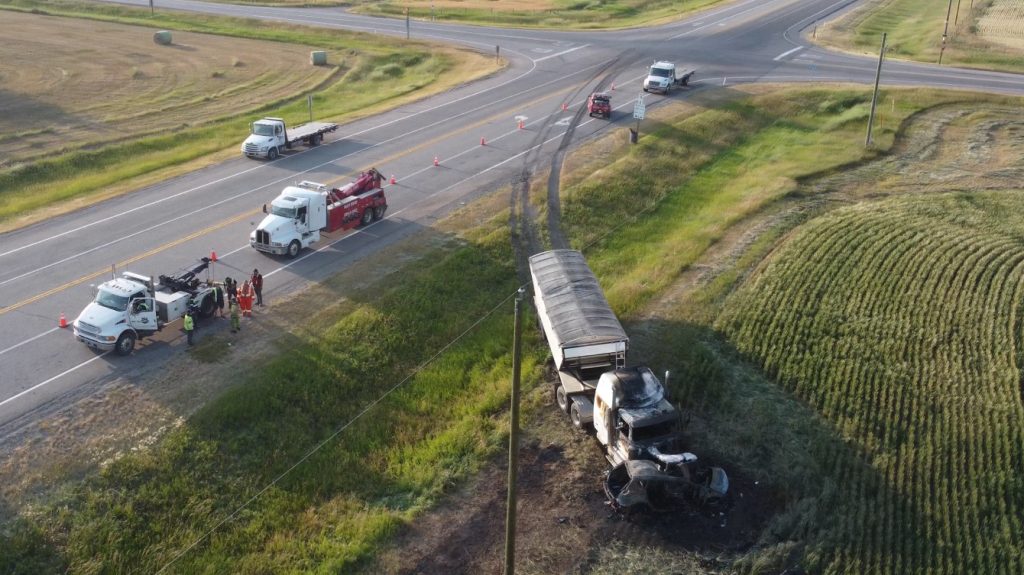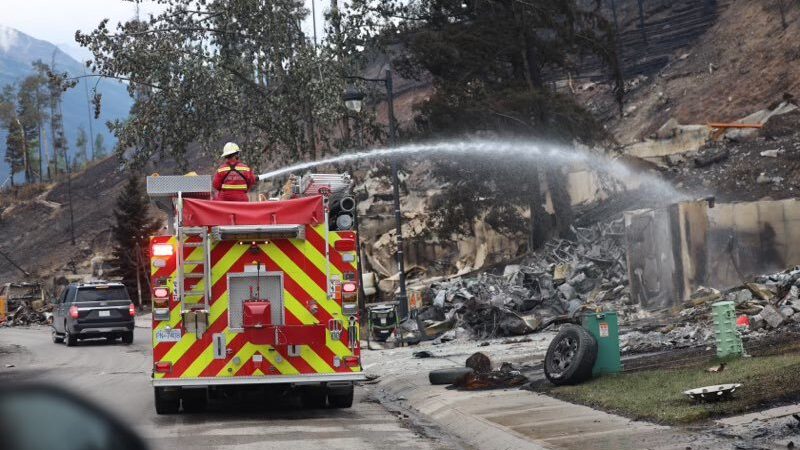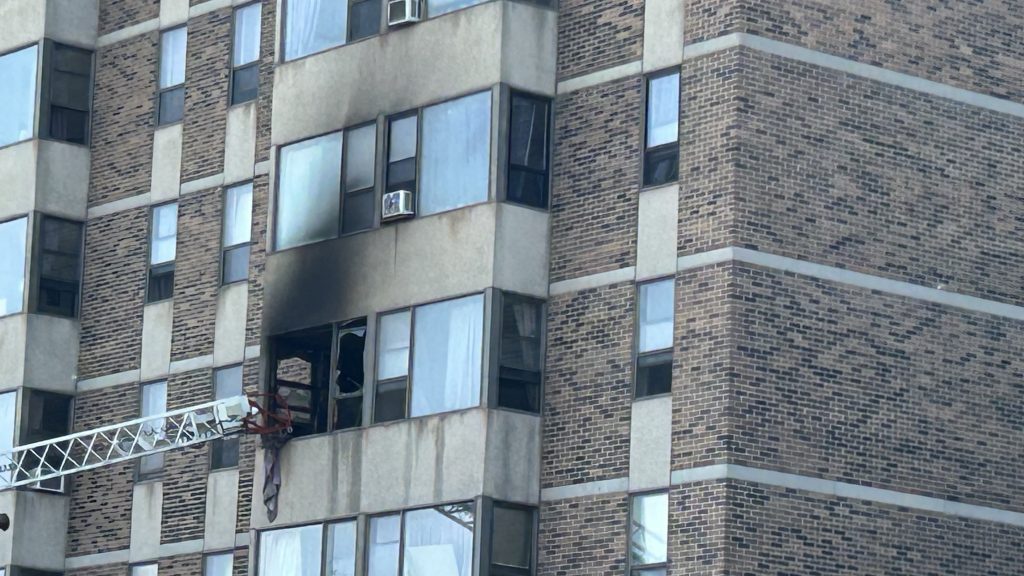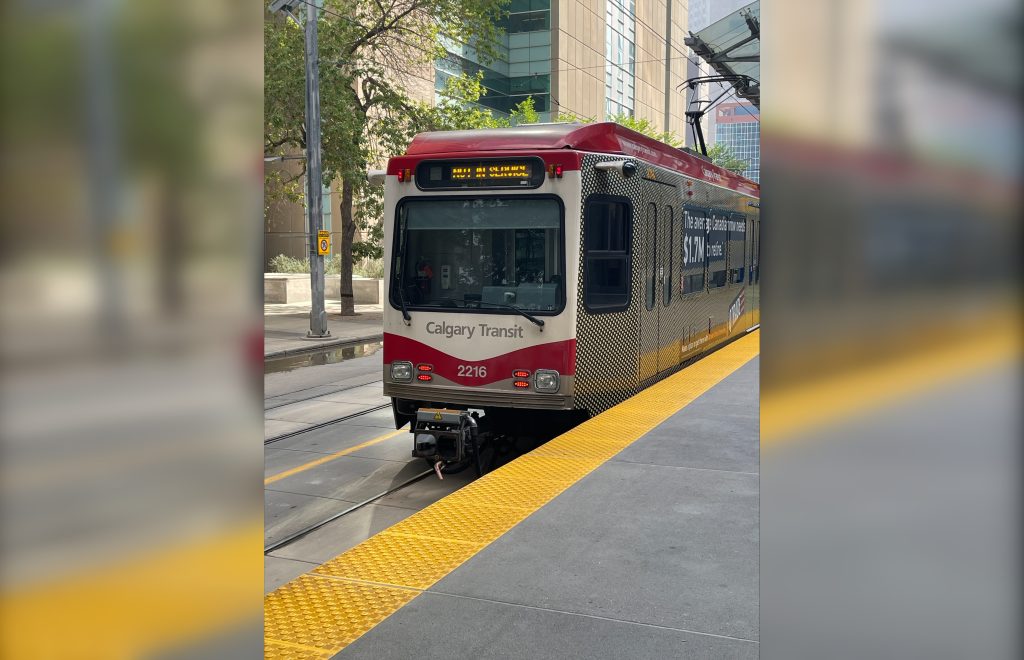WestJet pilots demonstrate as negotiations stall
Posted May 8, 2023 3:28 pm.
Last Updated May 8, 2023 6:53 pm.
Around 300 WestJet pilots in Calgary and up to 800 in Vancouver and Toronto are demonstrating outside airports Monday as negotiations between the Air Line Pilots Association (ALPA) and the airline continue to stall.
This comes as the union, which represents around 1,600 pilots, voted in favour of a strike mandate in mid-April.
The ALPA says it is prepared to file a 72-hour strike notice on May 13, with the possibility of “a legal position to commence job action on May 16, should management continue to stall negotiations.”
“We’re out here trying to show the company our resolve and our unity to get an industry contract that our pilots can be proud of, and one that can prevent our pilots from leaving,” said Bernard Lewall, WestJet ALPA Master Executive Council (MEC) chair.
“Our goal remains the same as when negotiations began last year—to reach an agreement that provides job security and career progression for our pilots and stability to the airline. The time is now for WestJet management to finally come to the bargaining table and negotiate in good faith with our pilot group.”
Watch: Will the threat of delayed passports and WestJet pilot strike hamper our summer travel?
The ALPA says WestJet pilots leave on average every 18 hours in search of a new job, with around 30 being lost monthly.
“Our pilots are frustrated, we’ve got pilots leaving for other airlines, we’ve got pilots that we would like to hire that will not come here because of the conditions here,” Lewall said.
“Right now, we’ve had, on average, one pilot a day leaving for other airlines within either Canada or the U.S. That has to stop, and we’re having a hard time attracting new pilots.”
Lewall says WestJet “needs to have a realistic understanding” of the market today, adding the new contracts need to align with existing agreements the union already has with other employers.
“We have been at the negotiating table for eight months. What we need as a pilot group to attract new pilots [and] retain the experienced ones we have, is an industry-standard contract within North America,” he explained.
“That consists of three primary goals that we’re looking for. One is job protection. The second is pay increases that would help us get closer to the North American industry standard, which is currently about 50 to 100 per cent higher than we are right now. And the third is scheduling improvements that will improve the work-life balance of our pilots.”
Related Stories:
-
What a possible WestJet strike could mean for May long travel plans
-
WestJet pilots vote in favour of strike mandate, want better pay and job protection
-
Travel plan fears surge amid PSAC strike, WestJet pilot strike talks
Alexis von Hoensbroech, the chief executive officer of WestJet, says the company is committed to agreeing to a “meaningful contract” before any job action happens, adding he is working “24/7” with the union at the bargaining table.
“Any deal that we agree on also has to safeguard the future of all 15,000 jobs that we have at WestJet,” von Hoensbroech said.
He says the pilots’ demands for fair wages may not work in a Canadian market, adding all pilots are paid in the “same ballpark” in Canada.
“Our pilots are amongst the best-paid pilots in Canada, so (their wages are) very appropriate in this market, and we do recognize that the standard is currently going up. However, raising the expectation that you can live in one country and then cherry-pick wages from another one is just not how the world works,” he said.
“The United States is a very, very different country than Canada. And, frankly, the companies, the airlines we compete with are not the airlines from the U.S., but they are the airlines in Canada. So that’s what sets the standards where we have to compete.”
Watch: Westjet pilots vote in favour of strike action
If job action does happen on May 17, he says WestJet has precautionary measures in place. But he hopes it doesn’t come to that.
“Our planes can only be flown by our pilots, yes. So if we don’t have sufficient pilots, then this will mean that … not all planes [will be] flying,” von Hoensbroech said.
“However, we have contingency plans in place that we can fly as many of our flights that we have scheduled as we can.”
Meanwhile, Lewall says when he joined WestJet 18 years ago, it was a career destination for pilots, but he doesn’t feel that way anymore and wants the company to return to its roots.
“We need a company that is growing, that is stable, and that we can all benefit in. That is really what we’re trying to tell the company today is come to the table, negotiate a fair industry contract with us, and we will be your bigger biggest promoters,” he said.
“We’re eight days out from a possible strike date. I have made our negotiators available 24 hours a day, seven days a week, I expect the company to do the same.”
-With files from Nick Blakeney








